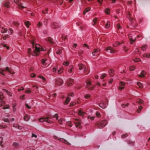At the 2019 ACR/ARP Annual Meeting in Atlanta, Nov. 8–13, the Basic Science Track will explore concepts on the next horizon of rheumatology.
“We worked to create sessions that, from a basic science perspective, cover diverse topics and appeal to a wide audience. These programs integrate cross-disciplinary approaches,” says Gregg Silverman, MD, professor, Department of Medicine, NYU Langone Health, New York, who chairs the Annual Meeting Planning Subcommittee that planned the Basic Science Track.
Here’s a preview of the exciting sessions planned for this year’s Annual Meeting:
Biomarkers, Precision Medicine & Machine Learning
Tuesday, Nov. 12, 9 a.m.
How do we integrate data from many studies to improve decision making in the rheumatology clinic? Machine learning may be the bridge to true precision medicine, this symposium suggests.
“We build bigger and bigger databases, but how do we go beyond that to apply data in the clinic to select therapies or make clinical decisions?” says Dr. Silverman. “This session will explore how new technologies will be increasingly integrated into diagnostic techniques and selection of therapies. It’s a very aspirational topic. We talk all the time about biomarkers, but how can we use technology to identify and quantitate biopathways?”
Speakers will explore how artificial intelligence-driven machine learning algorithms may integrate biomarker data to improve care for individual patients and guide more effective care.
Immunology Update: Harnessing Metabolism to Treat Rheumatic Disease
Tuesday, Nov. 12, 9 a.m.
Three Immunology Update sessions will review new data on the immune system’s role in many diseases and “how rheumatologists can make the most of cutting-edge information and its practical implications—how it relates to my patient and their disease,” says Dr. Silverman.
At one session, experts will explore metabolism’s role in disease therapy and drill down to the T cell level. “What are the implications if T cell metabolism is altered because the patient’s immune system is under stress? If your body is fighting lupus, oxygen in your system is used up quickly. Will the medications we prescribe be altered in this environment?” he says. “If certain cells are overtaxed, how can we shift therapy so the patient’s metabolism can do a better job?”
Dive into potential answers to these key questions at this intriguing session.
Tipping the Balance from Preclinical Autoimmunity to Overt RA
Sunday, Nov. 10, 4:30 p.m.
Some patients have rheumatoid arthritis (RA) related antibodies in their blood circulation. Although these biomarkers help rheumatologists identify RA, some patients don’t develop active disease. Why not? Explore this conundrum from a molecular perspective at this symposium.
One of the session’s speakers studied ACPA-positive individuals who didn’t develop RA. Do sugars and gut bacteria hold the clues? “There is a shift in cytokine expression at some point. Something changes the machinery for glycosylation in these ACPAs,” says Dr. Silverman. “Antibodies may become inflammatory because those individuals develop a leaky gut. It’s like a ticking time bomb—traced to an event in the intestines. There may be practical things we can do in food, medicines or probiotics to shift that process.”
Visit the 2019 ACR/ARP Annual Meeting Online Program to learn more about the topics featured in the Basic Science sessions.
Join Us at the Annual Meeting
The 2019 ACR/ARP Annual Meeting, Nov. 8–13, in Atlanta is your gateway to global rheumatology education. View the Online Program to find out more about the opportunities for professional development and networking, and obtain firsthand access to the latest rheumatology research and clinical applications. Register now, and don’t miss out.



